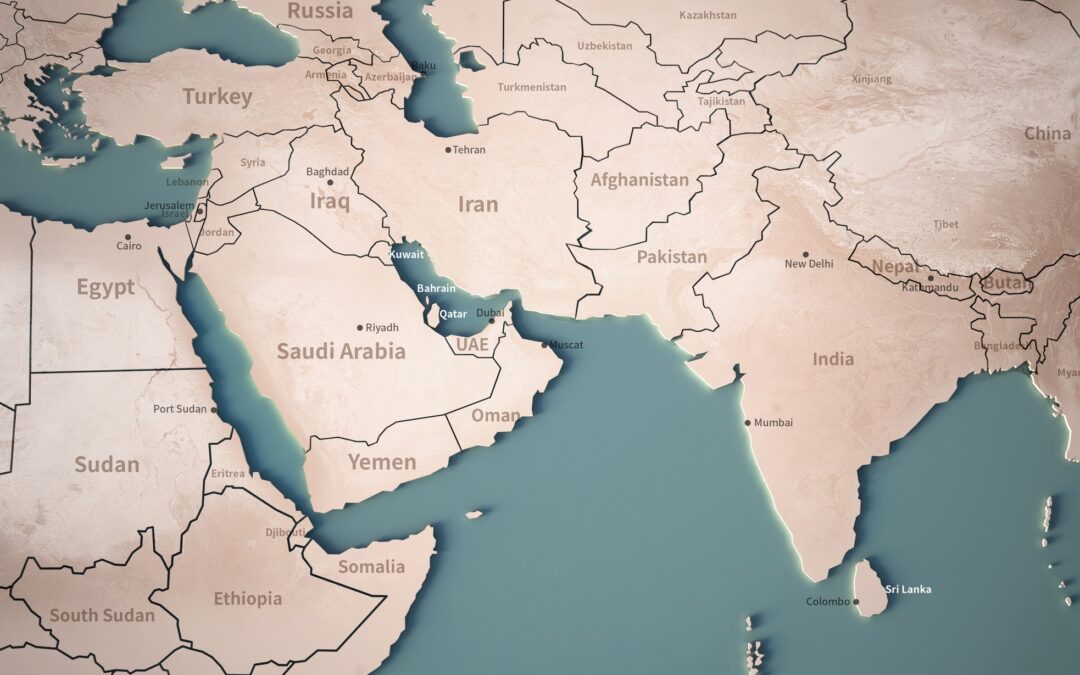Why Study the History of the Middle East?
UPDATE: Fracturing of the Middle East is now available as a recorded, independent-learning course.
For many Westerners, the geopolitics of the Middle East is a hopelessly confusing quagmire that defies understanding. We hear snippets of news from the region now and then when something noteworthy happens, but these are often given with little historical context. Why are the Palestinians throwing rocks at the Israelis again? Why is Yemen firing rockets into Saudi Arabia? Why has Syria been in a state of civil war for a decade? What was the Iran nuclear deal? Who is Hamas, and what do they want? What is OPEC, and why are they raising oil prices again?
These are all complex questions that require not only a solid grasp of regional history but religion and culture as well. When we lack this context, the story of the Middle East seems confusing, giving us the sense that it is a chaotic region where the only certainty is the next conflict.
The geopolitics of any region become much less opaque once we learn a bit about the history and culture of its people. That’s why this fall I will be teaching a high school course called Fracturing of the Middle East: From the Ottoman Empire to ISIS. This course is meant to shed some light on the situation in the Middle East by surveying the last 120 years of history to see how we got where we are today. Beginning with the closing days of the Ottoman Empire, students will learn how imperialism, nationalism, and other movements shaped the formation of the contemporary Middle East, with the goal of giving students a greater understanding of the current situation in this volatile part of the world. They will meet important national founders like Atatürk and King Faisal, learn about famous autocrats like Gamal Abdel Nasser and Hosni Mubarak, and study the colonial disputes of the 1920s and 30s that created the map of the region.
Specific people and topics we will cover in this fourteen-week course include:
- Lawrence of Arabia
- The Mandate States
- The Hashemite Dynasty
- The Sykes-Picot Agreement
- The Founding of Israel
- The Arab-Israeli Wars
- Arabic Socialism & Arabic Nationalism
- The Suez Canal
- The Saudi Oil Economy
- Wahhabi Islam
- The Lebanese Civil War
- Ayatollah Khomeini and the Iranian Revolution
- Muommar Gadaffi
- The Iran-Iraq War
- U.S. Interventions in the Region
- The Baath Party and Saddam Hussein
- The War on Terror
- The Arab Spring
- The Rise and Fall of ISIS
And that’s just a smattering; there’s so much more! The lectures are supported by primary source readings and occasional essay questions with weekly quizzes.
I’m sure it all sounds good, but why is it important to know the history of this region? What’s so important about the Middle East?
In the first place, in case you haven’t noticed, the United States has a long history of being embroiled in this part of the world. And it’s not a recent thing—we were getting involved with Saudi Arabian oil as far back as the 1930s. Then there is our longtime alliance with Israel, our support of Shah Reza Pahlavi of Iran, followed by our support of Saddam during the Iran-Iraq War (and our subsequent hostility to Saddam in the Gulf War), our military presence in Lebanon, the Iraq War of 2003, the War on Terror, the Iran Nuclear Deal, and a host of other strategic engagements. Understanding this part of the world is key to understanding our own diplomatic history.
It is also relevant to our own politics. Our involvement in the Middle East means Mideast subjects are often electoral talking points. Suppose you have a candidate who wants to “get tough with OPEC,” or “restore the Iran deal,” or “support an independent Kurdistan.” Do you know enough about these issues to decide if they are worth supporting? Knowledge of Middle Eastern affairs is part of being an informed American voter these days.
Finally, as Catholics, we should never forget the lands where Jesus was born, lived, died, and rose. “If I forget you, Jerusalem, let my right hand wither,” the Psalm says (Ps. 137:5). While we have no lasting kingdom here on earth, nevertheless Catholics have always shown a tender reverence for the Holy Land, those places where the deeds of our salvation were accomplished. These places and their stories are all part of our religious heritage.
To sign up for Fracturing of the Middle East, please visit our course registration page here.
Course Details:
Instructional Materials: Free course materials provided by the instructor. Includes a writing component.
Total classes: 14
Class dates: Thursdays, September 7 to December 14, 2023. (No class Nov. 23)
Starting time: 4:00 PM Eastern (3:00 Central, 2:00 Mountain, 1:00 Pacific)
Duration per class: 55 minutes
Prerequisite: None, but Modern European History is recommended (Available through Unlimited Access).
Suggested grade level: 9th to 12th grade. No middle school students, please.






